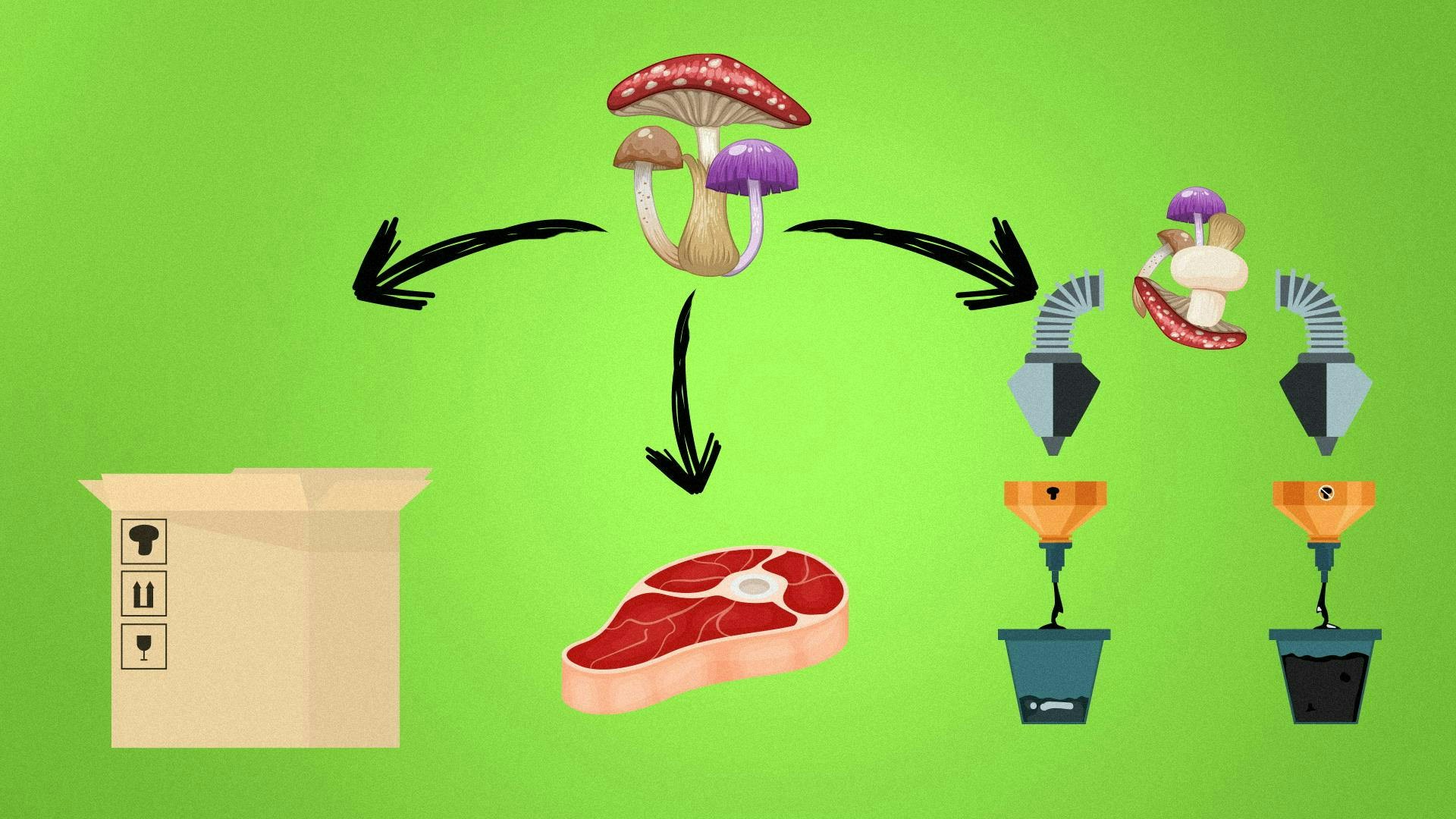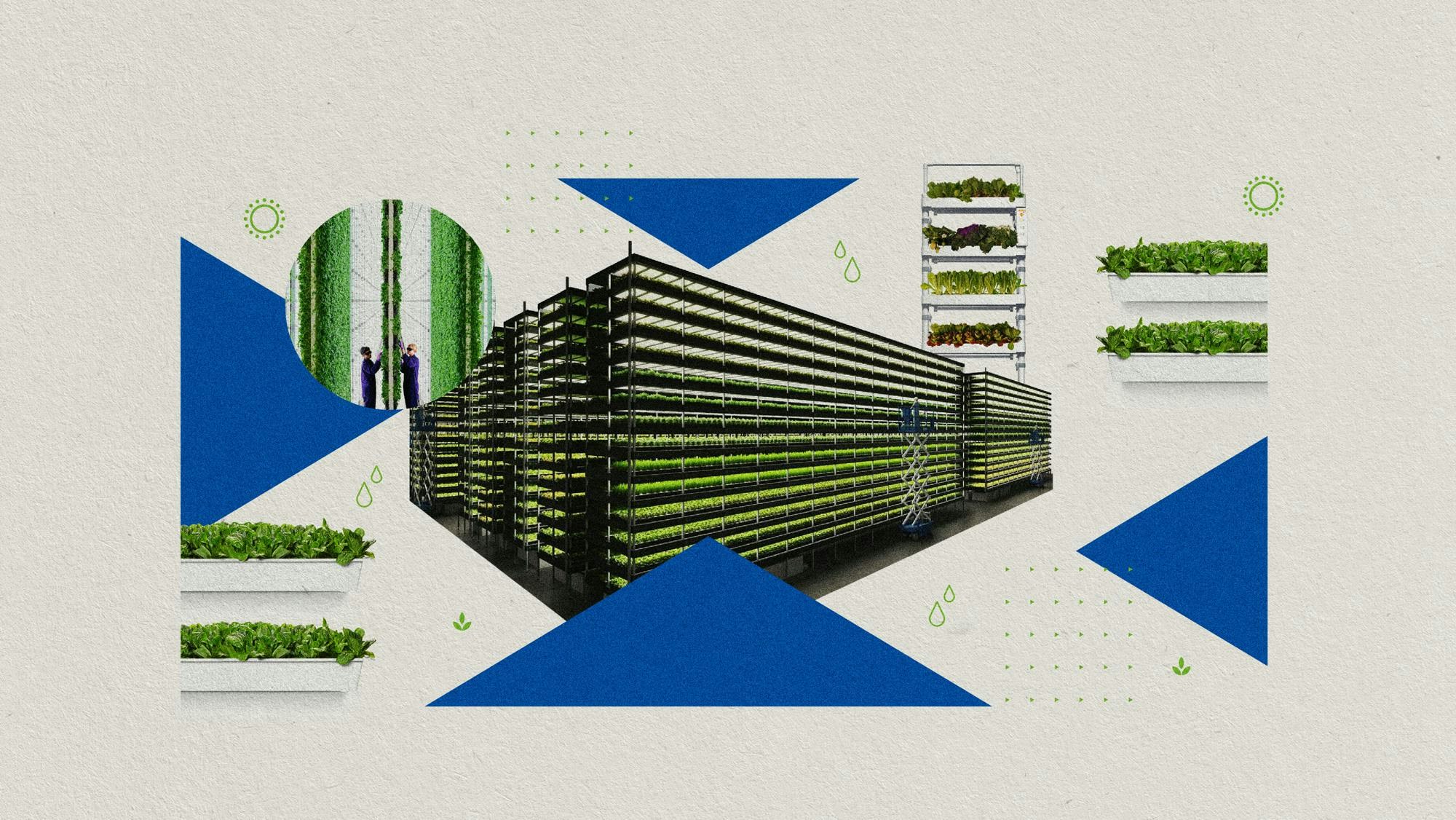Three Fantastic Fungal Technologies That Could Supercharge Climate Ambitions

TOPICS
ForesightMushrooms have long held a dual role in the human imagination. Sprouting from the dark corners of the earth, they are both alluring and anxiety-inducing.
In early 2023, the American Center for Disease Control and Prevention alerted the public to a critical outbreak of the drug-resistant Candida auris, a fungus predominantly affecting those with compromised immune systems. Over one-third of infected patients succumbed. No surprise, then, that fungi can spawn nightmarish scenarios, like the apocalyptic zombie outbreaks in "The Last of Us," triggered by terrifying cordyceps.
Frankly, though, fungal infections aren't as easily transmitted as viruses and bacteria. Antifungal medications, and not complex vaccines, will often help control them, though the threat posed by fungal pathogens remains undeniable. Fungi spread is also exacerbated by climate change factors like wildfire smoke, heat, precipitation, and drought.
But without them, we wouldn't have the world we live in. The resilience and versatility of fungi offer innovative solutions to pressing challenges. Below, we'll explore three groundbreaking fungal technologies that could respond to three major pollution issues: Plastic and meat overconsumption, and oil spills.
Mycelium packaging: fungi-based plastic
Mycelium, the root-like part of fungi, is composed of a network of microfilaments that can stick together. You've probably heard of mycelium; often compared to a neural network, it enables fungi to transmit communications and even resources to other organisms in the forest. But mycelium can also be transformed: Mycelium-composite material looks similar to moulded pulp or polyurethane foam. It can be cultivated into sustainable, biodegradable packaging material that rivals the strength and durability of single-use synthetic options, like plastic.
“Mushroom packaging” offers numerous benefits: it is compostable, water resistant, flame resistant, ocean safe, chemical free, and plastic free. But the technology's true potential lies in decomposition speed. Some fungi-based packages can break down in 45 days, compared to hundreds of years for petroleum-based plastics.
According to L’Atelier’s tech intelligence engine, the number of publications and patents surrounding this mushroom or mycelium packaging significantly increased in 2022. It’s just a matter of time before companies and investors flock. Companies like Magical Mushroom or Ecovative have already spearheaded mycelium-based products.
Mycoprotein: fungi-based meat
Fungi-based meat, sometimes referred to as mycoprotein and produced using specific strains of fungi, is a promising sustainable alternative to animal-based meat. The fungus is fermented, resulting in a dense fibrous structure that can mimic meat's texture.
Brands like Quorn, Meati, or Ecovative have championed mycoprotein products ranging from chicken nuggets and burger patties to bacon stripes. While these fungal products offer textures similar to animal meat, they are inherently different in their nutritional profiles. They can be rich in protein and fibre while also being low in fat, free from cholesterol and cruelty-free, setting them apart from animal-based counterparts.
Additionally, the environmental footprint of producing fungi-based meat is much lower than that of animal farming. A 2022 study published in Nature estimated that replacing just 20 percent of global ruminant meat consumption with some kind of microbial protein (bacteria, algae or fungi) by 2050, the effects could cut deforestation and CO2 emissions in half, in addition to lowering methane emissions.
Currently for mycoprotein, L’Atelier’s data suggests that top grant issuers are mostly medical institutes, including the National Institute of Allergy and Infectious Diseases, and the National Heart, Lung, and Blood Institute—signalling the degree to which overconsumption of meat also negatively impacts human health. Curiously, and despite all we've said here, the environmental sustainability sector has been slow to adopt or promote this technology's potential in kind.
Still, interest in fungi-based meat continues to grow among scientists. The number of academic papers has steadily risen since 2016, peaking in 2022 with 38 annual publications. Among the top publishing institutions are Yale and the University of Copenhagen. The number of patents have gone from one in 2019, to 21 in 2022! The technology remains emergent, but is gaining traction.
Mycoremediation: fungi-based remediation of oil spills
Fungi are some of nature’s most vigorous agents for decomposition. The natural capacity of certain mushrooms to detoxify and rejuvenate polluted environments is known as mycoremediation. It has notably shown promise in the remediation of oil spills and contaminated soil from the 2000s onward. Fungi’s mycelium uses inner enzymes to break down organic compounds, including hydrocarbons found in crude oil and petroleum products, ultimately feeding off toxic substances to help restore the ecological balance of affected areas.
As biologist Timothy S. Repas put it, “There are lots of microorganisms out there that eat hydrocarbons for a living. But what is really neat about this one is that it’s in symbiosis with a plant. It’s not only eating the hydrocarbons, but it’s letting the plant survive in these environments.” Fungi capable of mycoremediation not only avoid parasiting local fauna; they also mitigate and treat harm locally. From Amazonia to New Zealand, and passing through Saudi Arabia and Nigeria, native mushrooms can cure local soils in ways man-made treatments cannot.
There have been hundreds of research papers related to mycoremediation, published over the last 20 years; their numbers are only growing. Curiously, however, this fungal solution has not attracted many patent issuers nor grants. Some say it is because financing such technology would be admitting wrongdoing by oil companies; others believe it is because fungi-based remediation requires very specific conditions and further research to be truly viable. In any event, the technology is ripe for broader-scale support and testing.
Ultimately, fungal technologies echo the intrinsic duality of mushrooms: Oscillating between deadly poisons and powerhouses of capability. Fungi, in all their versatility, stand as a testament to nature's ability to offer solutions even as challenges mount. In times of climate crisis, turning to the fungal kingdom might just be the transformative shift we need.
Data on publications and patents courtesy of The Lens. Investment data: Pitchbook. Grants information: Elsevier.
25 Jan 2024
-
Nathalie Béchet
Illustration by Thomas Travert.
Get the future in your inbox each week.
02/03
Related Insights
03/03
L’Atelier is a data intelligence company based in Paris.
We use advanced machine learning and generative AI to identify emerging technologies and analyse their impact on countries, companies, and capital.


